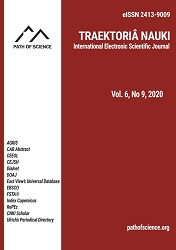A Comparative Study of Stochastic Models for Forecasting Electricity Generation and Consumption in Nigeria
A Comparative Study of Stochastic Models for Forecasting Electricity Generation and Consumption in Nigeria
Author(s): Bridget Edesiri Nkemnole, Akintayo AkinolaSubject(s): National Economy, Energy and Environmental Studies, Policy, planning, forecast and speculation, Socio-Economic Research
Published by: Altezoro, s. r. o. & Dialog
Keywords: Autoregressive model; Electricity generation; Electricity consumption; Forecasting; Harvey model; Markov model;
Summary/Abstract: With energy serious shortage of the Nigerian Power Sector owing to industry deregulation, abrupt variations in electricity demand, and increasing population density, Nigeria's economic development has been restricted. Thus, it is significant to balance the relationship between power generation and consumption, and further stabilize the two in a reasonable scope. To achieve balance, an accurate model to fit and predict electricity generation and consumption in Nigeria is required. This study, therefore, proposes a comparative study on stochastic modeling; (Harvey model, Autoregressive model, and Markov chain model) for forecasting electricity generation and consumption in Nigeria. The data gathered were analyzed and the model parameters were estimated using the maximum likelihood estimation technique. The comparative performance revealed that the Markov chain model best-predicted electricity generation than the Harvey and Autoregressive models. Also, for electricity consumption, results showed that the Harvey model predicted best than the Markov and Autoregressive models for electricity consumption. Thus, the Markov and Harvey model used to forecast electricity generation and consumption in Nigeria for the next 20 years (2018 to 2037) did not only reveal that electricity generation and consumption will continue to increase from 3,692.11 mln kW/h to 18,250.67 mln kW/h and from 2,961.10 mln kW/h to 127,071.30 mln kW/h respectively but also indicates high accuracy and the reference value of these models.
Journal: Traektoriâ Nauki
- Issue Year: 6/2020
- Issue No: 09
- Page Range: 2007-2025
- Page Count: 19
- Language: English

